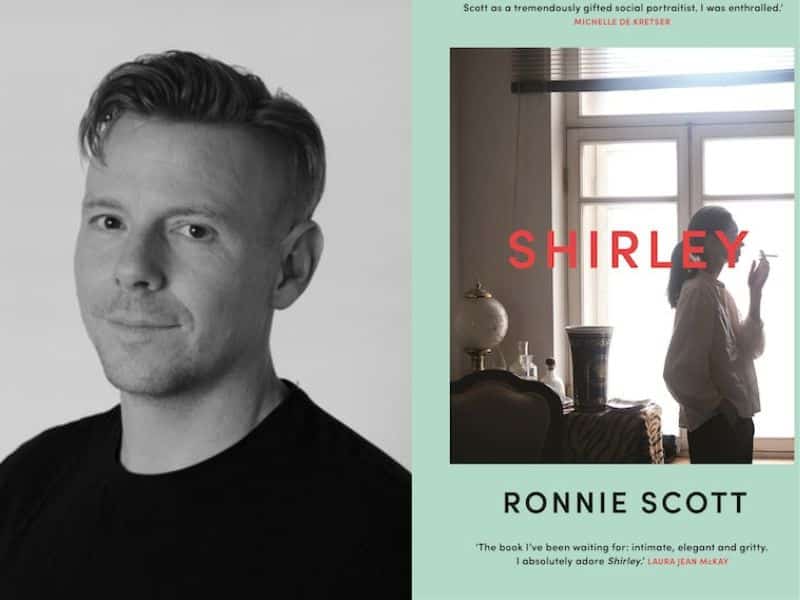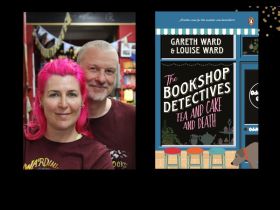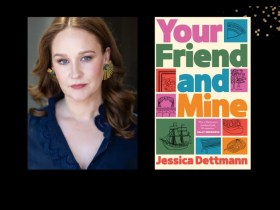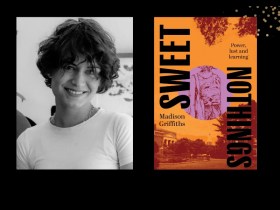Ronnie Scott’s second novel Shirley beings in Melbourne at the end of 2019, the air thick with bushfire smoke, a scene those of us living on the east coast of Australia at the time will remember. Most of the narrative takes place between the end of 2019 and the start of the COVID lockdowns, a small island of relative normality between events which, if not apocalyptic, seemed harbingers of some apocalypse at the time.
As far as I can tell, there has been no great arrival of COVID literature, as some people predicted during the pandemic. Nor can I discern any great clamouring for such a literature to arrive. Happily, then, Scott uses COVID as kind of motif rather than plunging his readers back into a period they would likely rather forget.
In retrospect, the period in which the majority of Shirley takes place has a liminal quality to it, and this quality is heightened by Scott’s characters, who have a slight air of unreality about them. His narrator, an unnamed woman in her early 30s with a famous TV chef mother, breaks up with her boyfriend David at the start of the novel to allow him to explore his sexuality. The severing of this relationship (although he lives in the apartment next to her, so the estrangement is not absolute) seems to cut her adrift in the world.
Her mother takes her calls, but never phones herself. Most of her social interactions are with her downstairs neighbours, the businesswoman Frankie, who idolises her mother, and her live-in ‘sperm donor’ Alex. They are strange characters, vacillating between elliptical reserve and the sharing of intimate details. (‘We’re not in love,’ Alex explains early on. Frankie explains, ‘I make a lot of money, and I liked his genes.’)
There is a certain haziness to this set-up, as if the characters have suppressed their natural emotions or perhaps sublimated them into material acquisition. There is little concrete to cling on to in the early pages. There is an initial promise of a mystery concerning a photograph of the protagonist’s mother taken outside their old house (the eponymous Shirley), which played a role in her leaving Australia. ‘What happened that night? It is a tempting question, and I will never answer it.’ But my expectation that this event would be disclosed gradually over the course of the novel was confounded by an explanation she recalls giving David, which appears fewer than 20 pages later.
Read: Book review: Little Plum, Laura McPhee-Browne
It is fair to say there is little by way of narrative drive in Shirley, but Scott writes very well. Events occur haphazardly, interspersed with memory, and meaning is revealed gradually, if at all. A possible critique would be that this adds up to a book that is less than wholly satisfying, but I rather suspect that a refusal to explain everything, the kind of liminal haze for which bushfire smoke may serve as a potent metaphor, is part of the point.
Shirley by Ronnie Scott
Publisher: Penguin
ISBN: 9780143796657
Format: Paperback
Pages: 304pp
Publication date: 7 February 2023
RRP: $32.99





